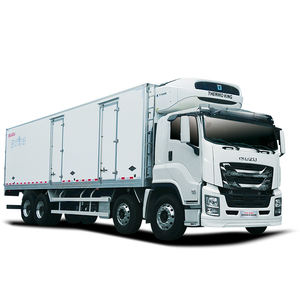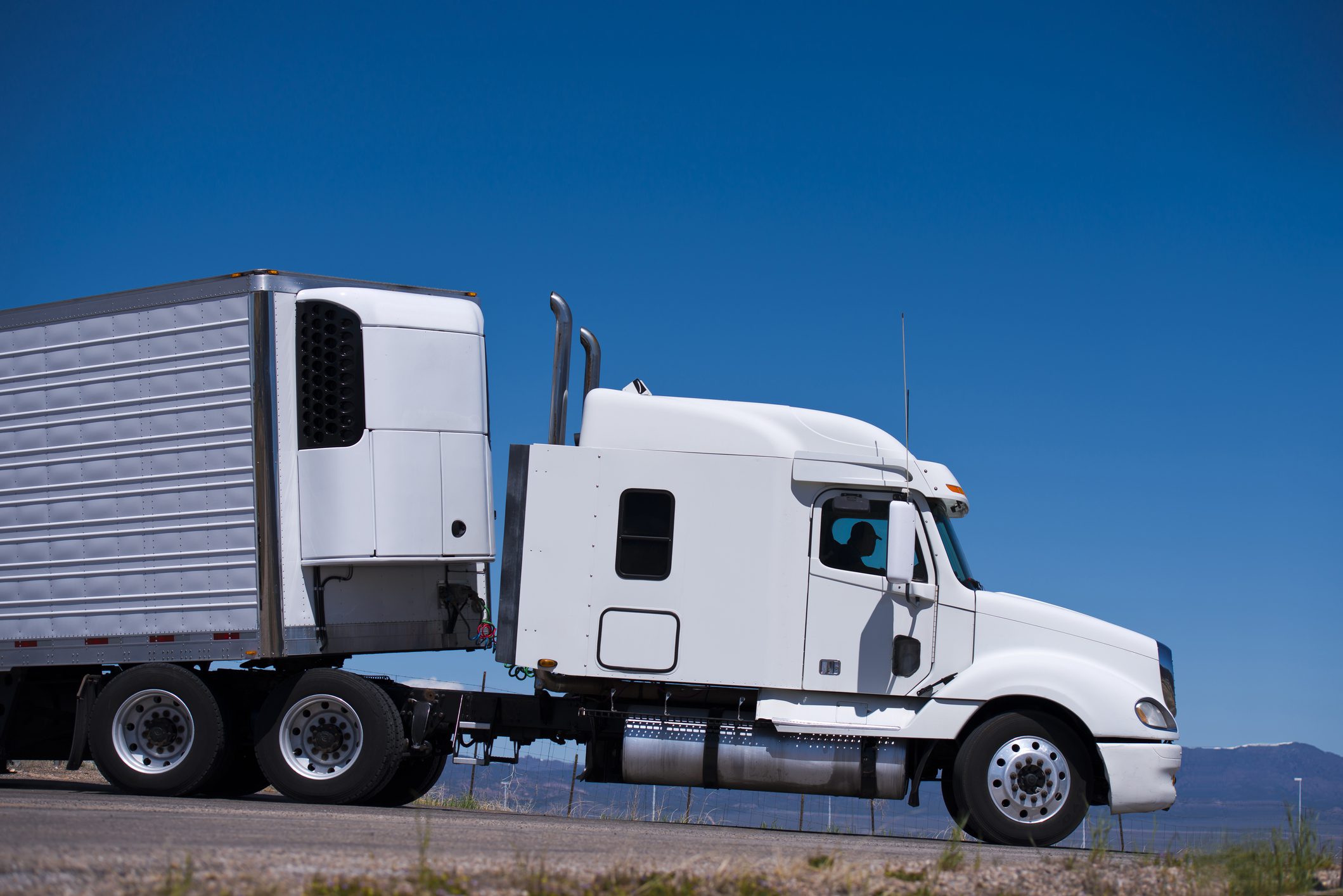Reefer Trucks Thermo King: Leading the Way in Cold Chain Innovation
Selecting the Right Transportation Refrigeration System for Your Fleet
Choosing a suitable transport refrigeration system for your fleet is an important choice that can substantially affect operational efficiency and item honesty. It requires a comprehensive understanding of your details refrigeration requirements, including temperature needs and distribution routines.
Understanding Your Refrigeration Demands
When selecting a transport refrigeration system, comprehending your certain refrigeration demands is paramount to guaranteeing product high quality and conformity with industry requirements. Different aspects have to be taken into consideration to determine the most suitable system for your operation. These include the kind of items being carried, their temperature level requirements, and the duration of transit.
For subject to spoiling goods, such as fresh fruit and vegetables or drugs, exact temperature control is vital. Understanding the temperature array needed for each product permits the choice of a system that can maintain those problems continually. Additionally, take into consideration the frequency of distributions and the distance took a trip; longer trips might necessitate systems with improved insulation or backup power options to stop temperature level fluctuations.

Additionally, the capacity of the refrigeration system should align with your lots size. Straining a device can cause inadequate cooling, while an oversized system might be costly and ineffective. Regulatory conformity is essential; familiarize yourself with international and local standards governing the transport of temperature-sensitive goods. By extensively examining these elements, you can make sure that your selected transportation refrigeration system effectively meets your functional demands and maintains product honesty.
Kinds Of Transportation Refrigeration Systems
Selecting the right sort of transport refrigeration system is crucial for making sure the risk-free transportation of temperature-sensitive products. There are numerous systems readily available, each created to fulfill certain needs and applications.
These systems are commonly preferred for their efficiency and lower initial prices. One more option is the main refrigeration system, which serves multiple areas or lorries from a solitary compressor system.
Additionally, there are self-contained refrigeration devices that combine the compressor and evaporator in one package. When area is restricted, these units are suitable for smaller cars or. For specialized applications, such as carrying perishables or pharmaceuticals, cryogenic refrigeration systems might be made use of, utilizing liquid nitrogen or carbon dioxide to keep ultra-low temperature levels.
Last but not least, hybrid refrigeration systems that combine electrical and diesel power are coming to be increasingly preferred, using versatility in power use and lowering ecological influence. Recognizing these different types enables fleet operators to make enlightened choices customized to their certain operational demands.
Key Attributes to Consider
How can one make sure that a transportation refrigeration system fulfills all operational needs? To accomplish this, a number of vital attributes should be carefully evaluated. Temperature level control is critical; systems should use precise temperature settings to fit various products, varying from iced up items to perishable things.
Energy efficiency is another important factor to consider, as it impacts functional costs. Search for systems that use innovative modern technology, such as variable rate compressors, to optimize power usage without compromising performance.
One more attribute to assess is the dependability and longevity of the tools. Systems created from high-quality materials and made for strength versus harsh conditions will certainly minimize maintenance expenses and downtime.
Additionally, the simplicity of upkeep and availability of parts can considerably influence operational performance (thermo king transport refrigeration). Features like modular designs or remote monitoring capabilities can streamline solution procedures
Lastly, compatibility with existing fleet monitoring software can improve tracking and reporting procedures. By focusing on these crucial attributes, fleet drivers can make certain that their transportation refrigeration systems not just satisfy present demands but additionally adapt to future demands.

Budgeting for Refrigeration Solutions
Examining crucial functions of transport refrigeration systems is only one component of ensuring functional efficiency; budgeting for refrigeration options is similarly essential. A well-structured budget not just includes the initial acquisition cost however also takes into consideration long-lasting operational costs, consisting of energy consumption, upkeep, and potential repair demands.
When establishing a budget, fleet managers should initially evaluate the total price of ownership (TCO) This consists of not only the procurement expenses but likewise ongoing expenditures connected to sustain effectiveness and the resilience of the refrigeration devices. Picking systems with higher power efficiency scores may generate substantial savings over time, reducing upfront prices.
Furthermore, fleet drivers ought to make up potential scalability. As services Discover More grow, the refrigeration needs might change, requiring upgrades or added units. Planning for these future expenditures can prevent economic pressure.
Funding options can additionally play an important duty in budgeting. Leasing, car loans, or straight-out acquisitions each have distinct financial effects, and recognizing these can aid in making an educated decision. Ultimately, an extensive budget plan that considers both future and instant demands ensures that transport This Site refrigeration systems contribute favorably to the total functional performance of the fleet.
Maintenance and Support Options
In the realm of transport refrigeration systems, efficient maintenance and assistance alternatives are critical for guaranteeing ideal performance and durability. Routine maintenance is necessary to protect against failures and keep the honesty of temperature-sensitive cargo. It is advisable to establish a routine inspection schedule with certified technicians that can execute necessary checks and fixings on refrigeration devices.
Assistance choices must include a robust service agreement, covering both regular upkeep and emergency repair work. This guarantees that your fleet has access to motivate aid, lessening downtime and preserving operational effectiveness. Many manufacturers supply detailed support packages that consist of training for your personnel, enabling them to perform fundamental troubleshooting and maintenance jobs.
Moreover, using remote tracking technology can improve your upkeep method - thermo king truck refrigeration. These systems give real-time information on temperature level and efficiency, permitting positive procedures before concerns rise. Spending in training and modern technology not just improves your fleet's dependability yet likewise expands the lifespan of your refrigeration systems
Ultimately, a tactical strategy to maintenance and support will safeguard your financial investment and make sure that your transportation refrigeration systems operate at peak performance, supplying regular results for your organization.

Verdict
In verdict, selecting the appropriate transportation refrigeration system for a fleet requires a comprehensive evaluation of details refrigeration requirements, system types, and necessary functions. In addition, cautious budgeting and see this page planning for future scalability will certainly contribute to the lasting success of the refrigeration approach.
Choosing an appropriate transportation refrigeration system for your fleet is a vital decision that can substantially impact functional efficiency and item integrity.When choosing a transportation refrigeration system, comprehending your details refrigeration demands is vital to guaranteeing item quality and conformity with sector standards. By extensively assessing these aspects, you can ensure that your chosen transport refrigeration system properly meets your operational requirements and keeps product honesty.
Ultimately, a detailed spending plan that considers both future and prompt demands guarantees that transport refrigeration systems add favorably to the overall operational effectiveness of the fleet.
In final thought, choosing the ideal transportation refrigeration system for a fleet necessitates an extensive analysis of details refrigeration needs, system types, and important functions.